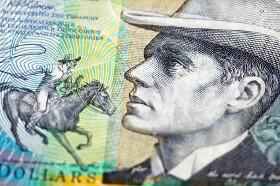The Australian dollar fell as signs of economic slowdown in China spooked Forex traders, causing concerns that demand for assets of the South Pacific nations will decline. The currency closed higher against the euro.
China’s economic growth slowed, reducing attractiveness of growth-related assets. China is a major trading partner of many commodity-exporting countries, Australia among them.
Sue Trinh, a senior foreign-exchange strategist at Royal Bank of Canada, commented on the market reaction to the slowdown of the Chinese economy:
The market is still surprised,. Weâre going to be watching at any increase in speculation of monetary policy easing by the Chinese authorities, which may at least help to prevent a deeper retracement in the Aussie.
News from the United States and Europe wasn’t good either, leading to a drop against the greenback and the yen, but also resulting in an advance versus the euro. The Aussie ended the week relatively good as fundamentals in Australia were largely favorable, mitigating the negative impact of risk aversion sentiment.
AUD/USD was down from 1.0437 to 1.0371 and AUD/JPY fell from 84.42 to 83.91. At the same time, EUR/AUD closed at 1.2604, following the jump from the opening price of 1.2629 to the daily maximum of 1.2684.
If you have any questions, comments or opinions regarding the Australian Dollar,
feel free to post them using the commentary form below.



Be First to Comment